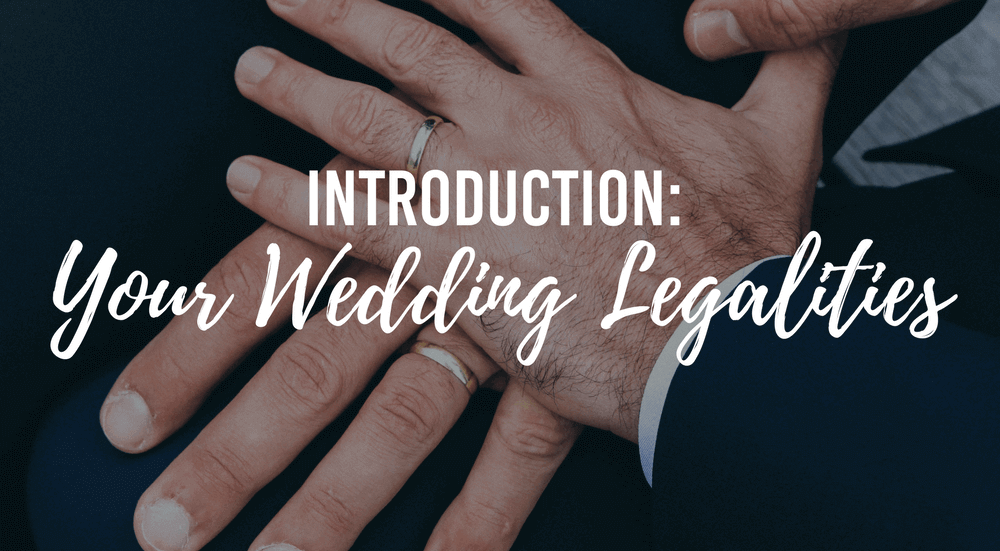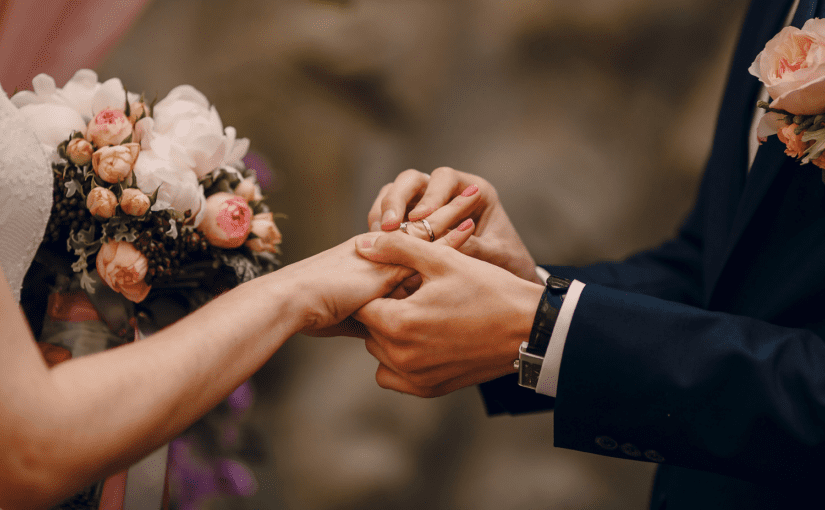
Marriage ceremonies can come in so many different and amazing forms. Whether it’s at a temple, mosque, synagogue, church or a registry office, a marriage partnership is one of the oldest traditions in many cultures. It can be difficult knowing exactly which wedding legalities each ceremony requires, both in terms of legal documents and religious proceedings.
We’re here to help with all those tiny details so that whichever ceremony you choose goes flawlessly. You can even filter our massive venue directory search to only include venues that have a license.
Good, huh?
For Civil Ceremonies:
The first step you have to take for a civil ceremony is giving notice. You should give notice at least 28 days before the marriage is due to take place. If you live in a different location to where the ceremony will occur, you are also expected to notify the local register. The notice needs to be given by the couple in person.
For a civil ceremony, you will also want to make sure that the venue where you choose to get married is licensed to register marriages. Most venues that host weddings are properly licensed, but it is worth checking with them just in case! You will want to make sure the person marrying you is also properly authorised and that you have two competent witnesses who will sign the marriage register.
For Religious Ceremonies:
Church of England ceremonies
All British citizens have the option of getting married in the Church of England, providing the church is local to where they are registered. Otherwise, it needs to be the couple’s chosen place of worship or the bride and groom must be listed on the church’s electoral poll.
Although new same-sex marriage legislation is now in force, it remains the case that it is not legally possible for same-sex couples to marry in the Church of England. Exceptions to these rules can be made if you speak directly to the religious authority presiding in the church, who will be more than happy to help you with any of your queries.
To get married in a church you must partake in the reading of the banns – basically a public announcement of your upcoming marriage! The banns are read on three consecutive Sundays within three months in the run-up to the wedding (the banns aren’t a requirement in Scotland). The couple should try to attend at least one of the readings and sometimes a number of Sunday services.
More information can be found here: http://www.yourchurchwedding.org/
Roman Catholic ceremonies
For a Roman Catholic ceremony, you will need to bring your baptism and confirmation certificates to the meeting with your priest, at least six months before the ceremony. If one of you is unbaptised, you will need to seek permission from your chosen Church and the priest. You may sometimes be required to attend marriage preparation talks and Mass for six weeks before your wedding day.
Jewish and Quaker ceremonies
While you still need to give notice to the register office a minimum of 28 days prior to the ceremony, the officials performing the ceremony will be able to register the marriage for you.
All other religious ceremonies
For all other religious ceremonies, we advise you to contact your place of worship for information, as they will be able to advise you if you require a superintendent registrar to be present at your wedding or if the ministers or priests can register the marriage for you. If you do need a superintendent registrar to register your marriage, you should book them as soon as possible, as they will have to be present at your ceremony. You will be required to give the 28-day notice at your local register office.
Additional Details:
Documentation
Once you have given notice (at least 28 days before the wedding), forms will be sent to you for you to fill in. You should include all relevant documentation, like birth certificates, death certificates and divorce certificates for those widowed/divorced, as well as proof of identity and nationality.
Time
In England, marriages used to be limited to the times between 8 a.m. and 6 p.m., excluding Muslim and Jewish weddings. However, the law has been changed and it is possible to get married at a later time, but we do strongly advise you check with your venue, as some will still have time limitations.
Payments
You and your partner will each be required to pay £35 when giving notice. You will need to pay £45 if you have the ceremony at a registry office and more at other venues. The marriage certificate will cost you £4 on the day of the wedding and £10 after.
Wedding Insurance
Insurance is a wedding essential you should really not forget about. As soon as you establish a budget, start shopping around for insurance, it can realistically cost you anything between £20-£200. It will cover you in most eventualities, so nothing can deter you from having the best day of your life.
Immigration
If you or your partner is subject to immigration laws, there may be other legalities for you to consider and we recommend you seek advice from https://www.gov.uk/marriages-civil-partnerships/religious-ceremonies.
Useful Contacts for Religious Ceremonies:
Baptist Union: 01235517700; baptist.org.uk
British Humanist Association: 02070793580; humanism.org.uk
Catholic Church: 02079014863; catholicchurch.org.uk
Catholic Marriage Care: 02073711341, marriagecare.org.uk
Church of England: 02078981000, cofe.anglican.org
Church of England Faculty Office: 02072225381; facultyoffice.org.uk
Church of Scotland: 01312255722; churchofscotland.org.uk
General Register Office for England and Wales: 08456037788, direct.gov.uk
General Register Office for Scotland: 01313144447; gro-scotland.gov.uk
Greek Orthodox Archdiocese: 02077234787; thyateira.org.uk
Humanist Society of Scotland: 08708749002; humanism-scotland.org.uk
Jewish Marriage Council: 02082036311, jmc-uk.org
The Methodist Church: 02074865502; methodist.org.uk
The United Reformed Church: 02079162020, urc.org.uk
Happy Planning!
If you enjoyed that article, here a few we suggest:
Tips To The Groom: Writing Your Wedding Speech
8 Things To Do Now That You’re Engaged
The Easiest and Smartest Way to Send Your Save the Dates
